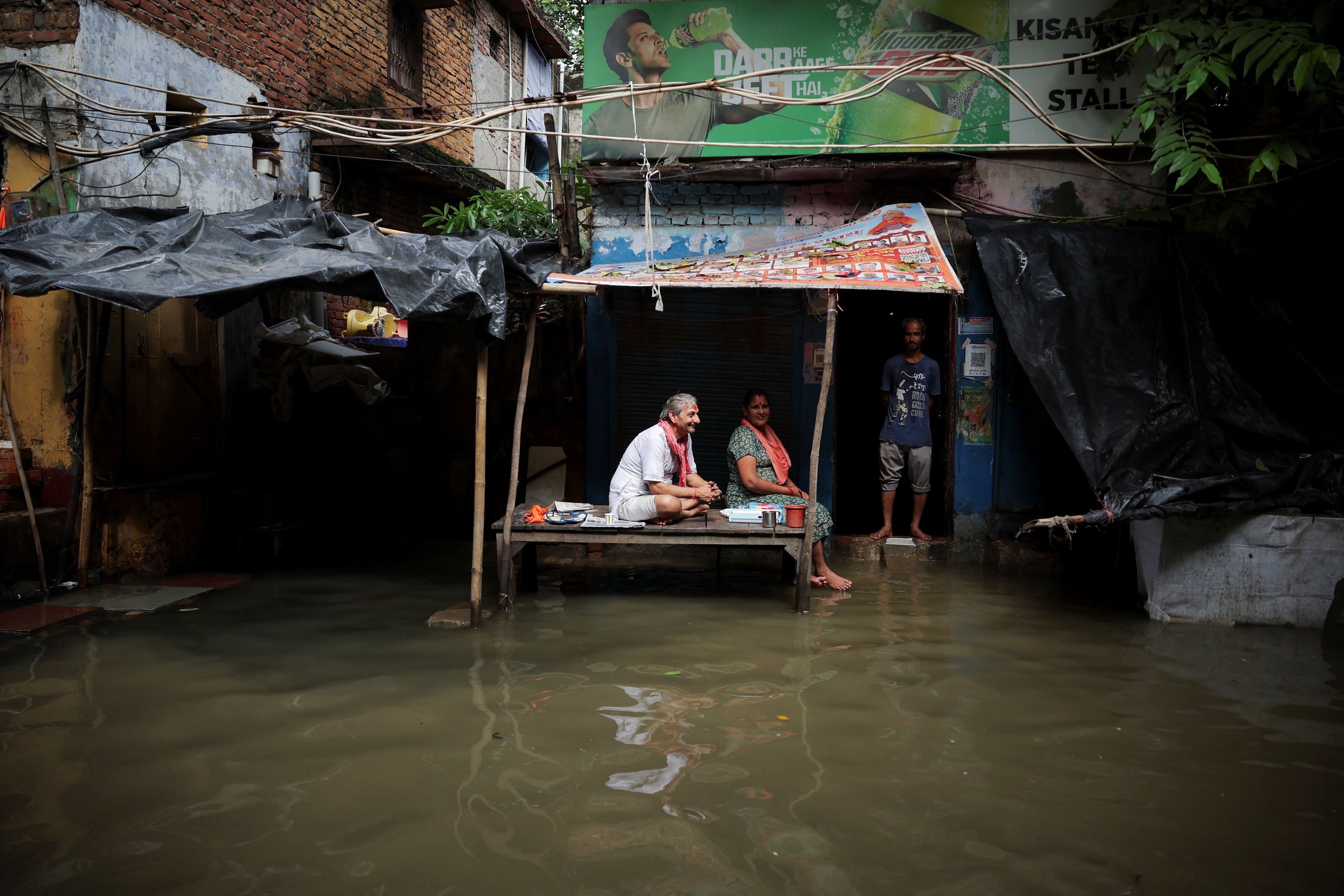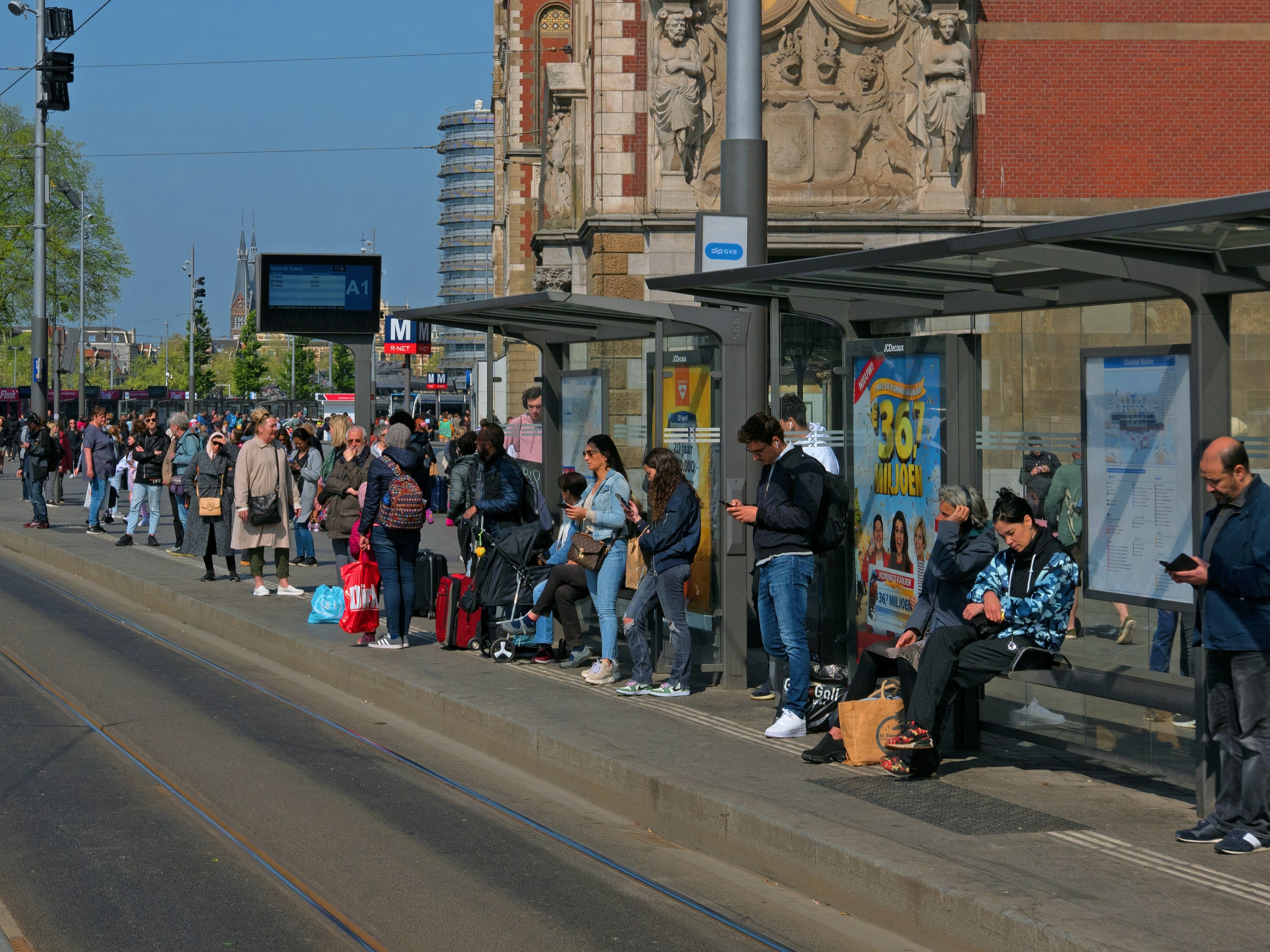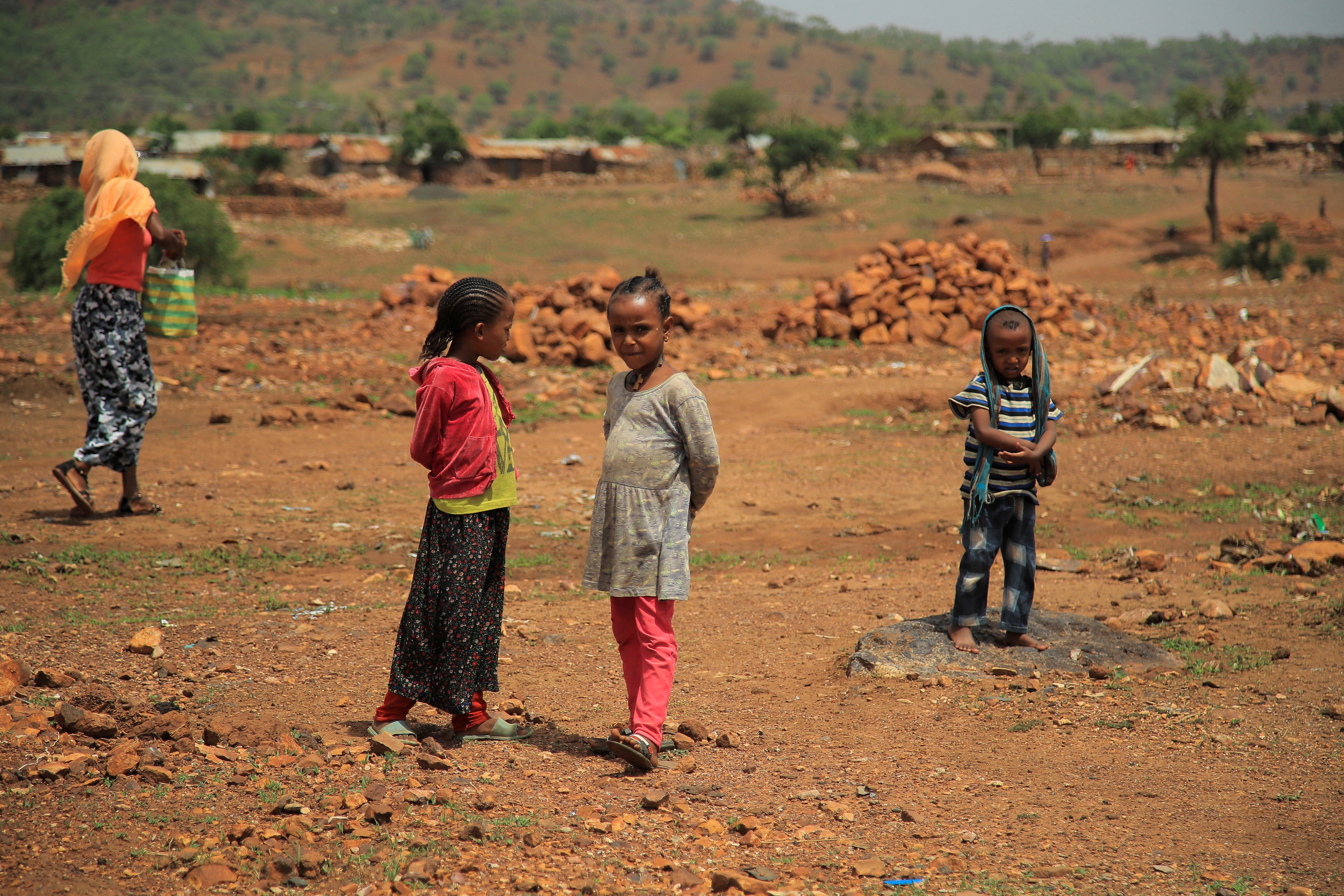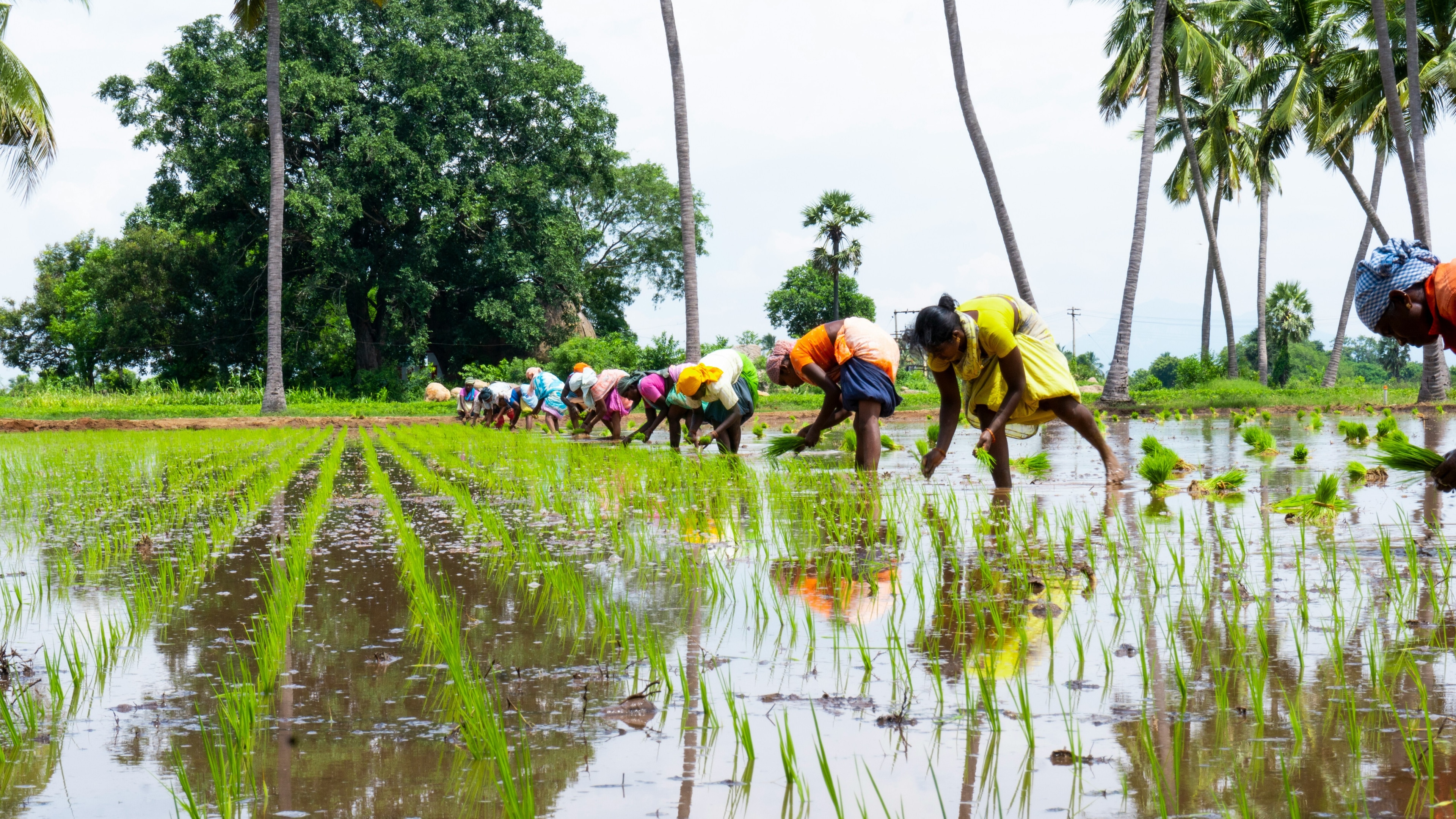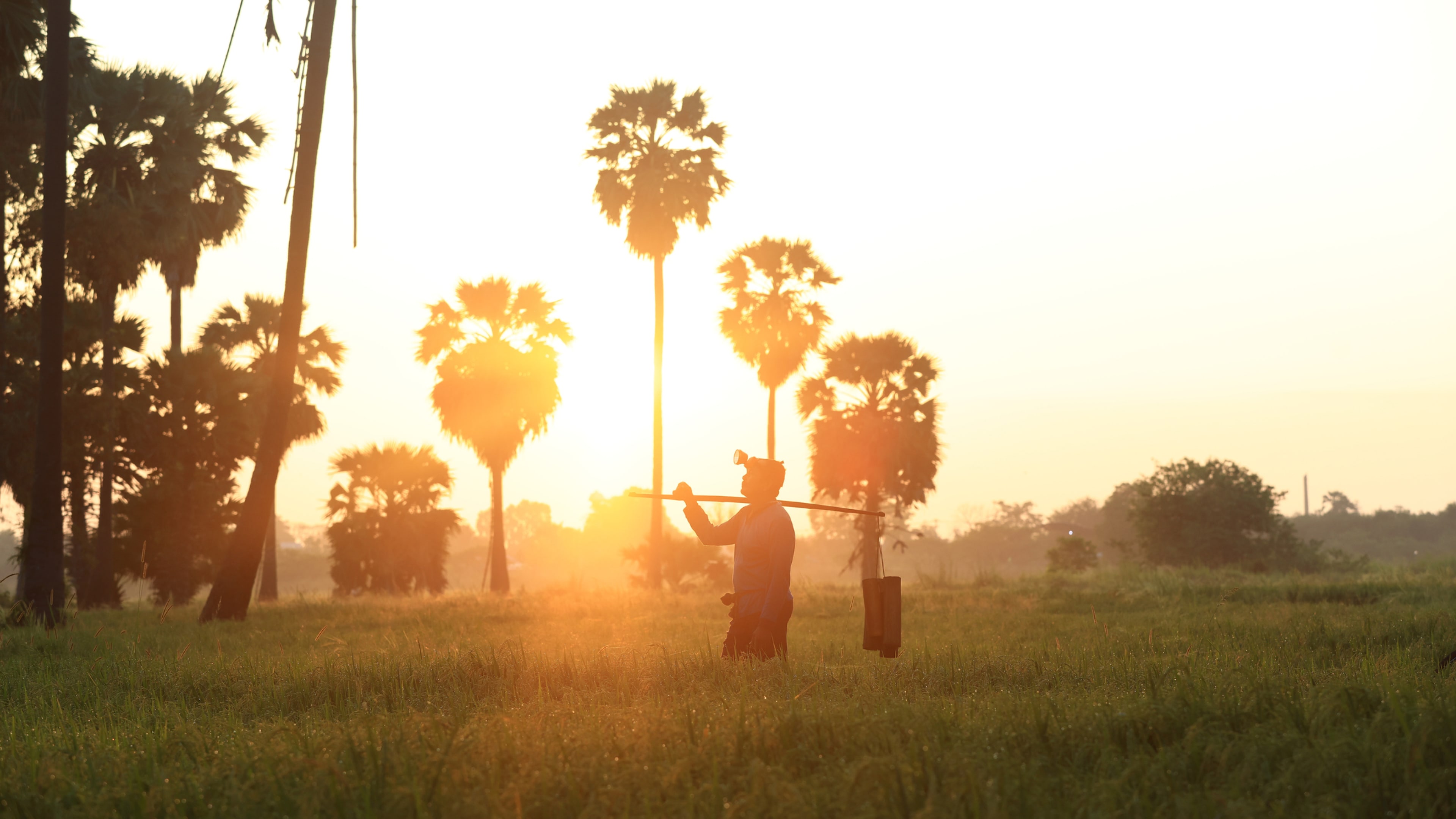Ukraine reveals we need better solutions to humanely tackle the growing global refugee crisis

A sports and entertainment hall transformed into an accommodation facility for Ukrainian refugees in Poznan, Poland. Image: Agencja Wyborcza.pl via Reuters
- The Ukraine crisis, causing a possible 5 million refugees, shows the need to address the broader global refugee crisis.
- Public and private service organizations must adopt human-centred solutions.
- Hospitable refugee service systems are the basis of this approach.
With the war in Ukraine, Europe faces its biggest humanitarian crisis since the end of World War II. The world was already experiencing a massive global refugee crisis, but the invasion of Ukraine created a wave of refugees. Many neighbouring countries are now receiving huge numbers of arrivals. The number of Ukrainians who have fled the country is already estimated to exceed 2 million people, according to the UNHCR, and that number is soon estimated to go as high as 5 million. In addition to supporting humanitarian and diplomatic efforts, the size and speed of the Ukraine crisis increases the need for global solutions to the global refugee crisis.
We recommend public and private service organizations adopt a human-centred approach to alleviate the suffering of refugees and increase their well-being. As laid out in our recently published paper The Transformative Refugee Service Experience Framework (TRSEF), this framework is based on the logic that refugees should have “the human right to essential services”, with no discrimination based on their race, skin colour, religion, etc. Governments, policy-makers, public and private organizations, media and individuals worldwide should all work toward the goal of humanely meeting the essential needs of desperate refugees.
The TRSEF has three core dimensions:
1. Refugee solutions should create hospitable service systems
The TRSEF model portrays refugee experiences ranging from negative (suffering) or positive (well-being) and are shaped by service systems characteristics, i.e. arriving into either hostile or hospitable service systems. The negative refugee experiences feature hostility and unfriendly behaviours toward refugees that increase their suffering. The positive refugee experiences feature welcoming behaviours that permit the use of resources by refugees and locals to increase refugee well-being. For example, Poland offers numerous examples of providing hospitable refugee services, which include free train services that refugees from Ukraine can use on their journey. The implication of TRSEF is that if we want to alleviate refugees’ suffering and improve their well-being, we need to transition from hostile service systems to hospitable service systems to better serve their needs. Such a transition requires consideration of the other two dimensions of TRSEF.

2. Refugee solutions should be designed for each phase of the refugee journey
Refugees’ journeys consist of multiple phases during which people’s essential service needs change. Those phases include “Entry, transition and exit”, beginning with refugee decisions to flee their country of origin and finishing when they integrate into their new host country, or voluntarily and safely returning to their country of origin. TRSEF shows that it is important to identify which stage refugees are at. This is because such journeys can be lengthy and demand multiple survival strategies. For example, the needs of refugees from Ukraine just entering their journey can be quite different from the needs of Syrian refugees already much further along in their transition phase. At first, the solutions to refugee needs may focus on their most urgent needs and on providing emergency services. However, planning for services needed during transition, such as education, housing and employment, should start sooner than later to better prepare for that phase.
3. Refugee solutions should be designed to meet refugee needs at different system levels
The TRSEF model shows that devising appropriate solutions for refugee needs requires action at three levels:
At the macro level, national governments, regional governments, the UNHCR, the World Economic Forum or other international bodies play important roles as they establish norms, values and laws. For example, revisiting and relaxing tight regulations and removing bureaucratic constraints to obtaining asylum (or other forms of legal protection by governments) should increase access to essential services that would create hospitable solutions for refugees. In fact, the recent EU decision to offer Ukraine refugees the temporary right to live and work in EU nations is an example of a more hospitable policy and an historic step toward providing humane relief to those refugees.
Public, non-profit, and for-profit organizations and service providers and local refugee community work at the meso level, and they need to be engaged as they develop and implement specific solutions to match refugee service needs. For example, when such organizations view refugees as contributors rather than a burden, by acknowledging their agency and skills, this is a major step in creating more hospitable solutions and subsequent positive experiences and well-being. Also, with the use of technology like open-source intelligence platforms, different types of support and relief could be provided to public administration representatives and those refugees.
Finally, at the micro level, refugees, their families and citizens of host countries need to be included as refugees’ individual needs, activities and experiences are highly variable and depend on their interactions with other individuals at this level. For example, a welcoming culture by locals creates friendly and hospitable interactions between the locals and refugees, which creates opportunities for well-being as refugees build social capital and develop feelings of security and belonging. Citizens of the neighbouring countries to Ukraine are doing a lot to help refugees, including handing out essentials or by cooking meals for them. These are inspiring examples of what can be done at the individual/micro level to help refugees.
How is the World Economic Forum helping to improve humanitarian assistance?
We would like to see closer collaboration between World Economic Forum partners, such as leading global companies, social innovators, social entrepreneurs and civil society representatives. Such collaborations with researchers around the globe that focus on the transformation of the refugee service systems can be built by following the example of non-profit organizations like ServCollab to reduce suffering and increase the well-being of refugees. Any World Economic Forum partner interested in applying this framework to diagnosing and improving refugee experiences is invited to contact Sertan Kabadayi at Kabadayi@Fordham.edu
Don't miss any update on this topic
Create a free account and access your personalized content collection with our latest publications and analyses.
License and Republishing
World Economic Forum articles may be republished in accordance with the Creative Commons Attribution-NonCommercial-NoDerivatives 4.0 International Public License, and in accordance with our Terms of Use.
The views expressed in this article are those of the author alone and not the World Economic Forum.
Stay up to date:
Migration
Forum Stories newsletter
Bringing you weekly curated insights and analysis on the global issues that matter.
More on Resilience, Peace and SecuritySee all
Shoko Noda and Kamal Kishore
October 9, 2025

